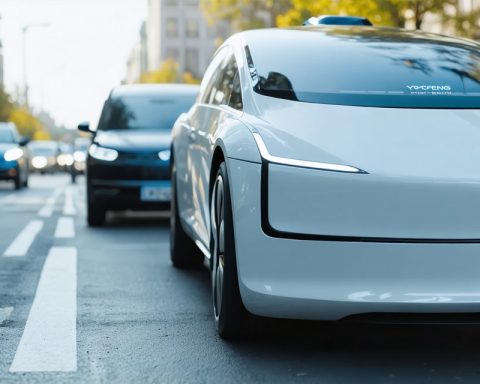In a strategic move to expand its global technological influence, Microsoft has unveiled plans to invest a staggering $80 billion in AI data centers across Africa and Asia. This ambitious initiative aims to counter the growing presence of China in these regions.
Boosting Technological Infrastructure
Microsoft’s investment will significantly enhance the technological infrastructure in Africa and Asia. The tech giant plans to establish a network of state-of-the-art data centers designed to handle the increasing demand for artificial intelligence services. By doing so, Microsoft not only positions itself as a leader in the AI sector but also provides vital support to emerging markets in these regions.
Strategic Interests
This massive investment is a clear indication of Microsoft’s intent to strengthen its foothold in markets where China’s influence has been on the rise. By investing heavily in AI capabilities in Africa and Asia, Microsoft aims to foster technological innovation and provide opportunities for digital transformation in these areas.
Long-term Vision
The core of Microsoft’s strategy is to nurture local talent and enhance digital literacy, effectively bridging the digital divide. By building robust AI data centers, Microsoft seeks to empower businesses and individuals, unlocking potential growth and development opportunities.
As Microsoft paves the way for a technology-driven future, their investment marks a significant step in the ongoing competition for digital supremacy between the West and China, reinforcing the importance of AI in shaping the global landscape.
Microsoft’s $80 Billion AI Investment: Game-Changer or Risky Bet?
AI Investment Trends: Microsoft’s Global Ambitions in Focus
Microsoft’s recent announcement of its $80 billion investment in AI data centers across Africa and Asia marks a significant milestone in the tech industry. This bold strategy not only underscores the importance of artificial intelligence in today’s digital landscape but also reflects a strategic shift in global tech dynamics. The move aims to establish a substantial technological presence in regions where digital infrastructure is rapidly developing and where China’s influence is increasingly prominent.
Pros and Cons of Expanding AI Infrastructure in Emerging Markets
Microsoft’s investment brings several advantages to the forefront. By setting up state-of-the-art AI data centers, Microsoft contributes to enhancing digital literacy, fostering innovation, and creating employment opportunities in Africa and Asia. This initiative serves as a powerful catalyst for economic growth and technological advancement, potentially unlocking untapped potential in these emerging markets.
However, the ambitious scale of this investment also presents challenges. There are potential hurdles related to regional regulations, cybersecurity, and infrastructure sustainability. The success of such a massive deployment hinges on effective local partnerships and ensuring regulatory compliance.
Comparative Analysis: Microsoft’s Strategy Versus Competitors
In the race to develop AI capabilities, companies like Microsoft, Google, and Amazon are aggressively expanding their data infrastructure. Microsoft’s move to invest in Africa and Asia differentiates it from competitors primarily focusing on established markets. By strategically broadening its reach, Microsoft seeks to capture a significant share of emerging digital economies.
This investment positions Microsoft’s strategy as both pioneering and potentially risky, compared to competitors focusing on enhancing AI capabilities within existing markets.
Insights and Predictions for AI in Emerging Markets
The impact of Microsoft’s $80 billion investment is expected to reverberate across the tech industry, driving new trends in AI deployment. As digital infrastructure evolves in Africa and Asia, these regions could become hotbeds for AI innovation and frameworks for sustainable tech development. The anticipated rise in local talent and digital literacy stands to offer significant returns on investment, potentially reshaping global technological hierarchies.
Industry experts predict that other tech giants may follow Microsoft’s approach, diversifying AI investments into emerging markets, which could lead to increased competition and innovation in these areas.
Sustainability and Security in AI Development
As Microsoft builds expansive AI data centers, ensuring sustainability and security remains paramount. Incorporating eco-friendly practices and robust cybersecurity measures will be crucial in mitigating environmental impact and safeguarding data integrity. Microsoft’s commitment to sustainability could set an industry benchmark for responsible AI development, fostering trust and reliability among new digital ecosystems.
The Bottom Line
Microsoft’s $80 billion investment in AI data centers across Africa and Asia represents both a formidable opportunity and a strategic risk. As this initiative unfolds, its success will likely influence future approaches to AI infrastructure investment, paving the way for technological empowerment in regions poised for digital transformation.
For further insights into Microsoft’s AI initiatives, visit the Microsoft website.















